|
Fungi are fascinating: they grow in all kinds of shapes and sizes, colours and locations, and have some very interesting characteristics and names. Giant Puffballs, Old Man of the Woods, Poison Pies, Apricot Jellies, Dead Man’s Fingers, and Jack-O-Lanterns are just some of these unique descriptors. One species is called the Corpse Finder Mushroom, and it is named this way for the obvious reason: it indicates the presence of a decaying mammal. Like many mushrooms, the Corpse Finder is a decomposer living on dead organic material. Apparently a whole cluster of these mushrooms helped find a shallow burial site of a human corpse and solve a crime. The Corpse Finder Mushroom, while very much alive itself, is an indicator of death. We have these indicators of death in the spiritual realm, as well, but often overlook them. In the Message, Eugene Peterson translates Jesus’ words of Rev.3:1-6 by pointing out these indicators of death in contemporary language: “Write this to Sardis, to the Angel of the church. The One holding the Seven Spirits of God in one hand, a firm grip on the Seven Stars with the other, speaks: The problem of the church in Sardis is often our problem, as well: busywork, having a reputation for vigor and zest, but not completing God’s work. We run a sheer endless array of programmes at our churches, create mountains of paperwork, work on countless committees, keep our volunteers busy every night of the week, attend Christian concerts and conferences, organize fundraisers, community events, bus trips, short term missions, etc., etc. Could it be that much of what we do is just busywork, not the actual work that God has called us to? Are we more concerned about an outward appearance of having a vigorous and zestful ministry, than about taking the time to listen to Jesus and finding out what He has in mind? Are we more like the distracted Martha than the devoted Mary? Or worse yet: are we like the Scribes and Pharisees whom Jesus criticised severely in Mt.23: “27 “Woe to you, teachers of the law and Pharisees, you hypocrites! You are like whitewashed tombs, which look beautiful on the outside but on the inside are full of the bones of the dead and everything unclean. 28 In the same way, on the outside you appear to people as righteous but on the inside you are full of hypocrisy and wickedness.” Jesus, like the Corpse Finder Mushroom, indicated the presence of death, decay and decomposition right at the top leadership levels of the religious establishment. What’s He pointing out in our lives?
30 Comments
Rulers and rattlers have a pretty bad reputation. And that’s not anything new. David questions whether they are really interested in what is right, and associates political rhetoric with rattlesnake poison in Ps.58: “Is this any way to run a country? Is there an honest politician in the house? Those in charge often abuse their position of power. They refuse to listen and frequently put a political spin on reality that will suit their agenda. And that’s not just the case in national, provincial and local politics, it’s unfortunately often also true in religious communities. Ezekiel talked about false shepherds who only pursue their own agendas, exploiting the flock, and Jesus predicted persecution of his followers by the religious establishment: “You must be on your guard. You will be handed over to the local councils and flogged in the synagogues.” (NIV Mk.13:9). John writes about a certain Diotrephes in his third epistle who engaged in these kinds of politics (MSG 3.Jn.9-10): “Earlier I wrote something along this line to the church, but Diotrephes, who loves being in charge, denigrates my counsel. If I come, you can be sure I’ll hold him to account for spreading vicious rumors about us. As if that weren’t bad enough, he not only refuses hospitality to traveling Christians but tries to stop others from welcoming them. Worse yet, instead of inviting them in he throws them out.” Unfortunately, church history records many of these abuses of power, where religious leadership does not consist of virtuous servants, but of venomous serpents: “poison, lethal rattlesnake poison, drips from their forked tongues.” Instead of furthering a life-giving community, they poison the atmosphere. In 2.Peter 2, the apostle describes such corrupt leadership in detail and in the following chapter, he encourages the believers to recall the words of the prophets and Jesus Himself that all of this evil will be judged and come to an end. And then we will experience, what he says in v.13 (VOICE): “What will happen next, and what we hope for, is what God promised: a new heaven and a new earth where justice reigns.” This is going to be the time, when even rattlesnakes can no longer do any damage, as Isaiah prophesied: “The nursing child will crawl over rattlesnake dens, the toddler stick his hand down the hole of a serpent. Neither animal nor human will hurt or kill on my holy mountain. The whole earth will be brimming with knowing God-Alive, a living knowledge of God ocean-deep, ocean-wide.” (MSG Is.11:8&9) But we are not there yet, so what can we do in the meantime? Since we cannot necessarily control other people’s action, what’s the best thing we can do? The same question is being asked by Peter (in NIV 2.Pet.3:11-14): “what kind of people ought you to be? You ought to live holy and godly lives as you look forward to the day of God and speed its coming… So then, dear friends, since Our focus needs to be on Jesus! There is no benefit in allowing our thoughts to anxiously revolve around what other people are saying. Much of that is rattlesnake poison. We need to focus on communing and communicating with Jesus. As Paul says in Phil.4 NIV: “4 Rejoice in the Lord always. I will say it again: Rejoice! 5 Let your gentleness be evident to all. The Lord is near. 6 Do not be anxious about anything, but in every situation, by prayer and petition, with thanksgiving, present your requests to God. 7 And the peace of God, which transcends all understanding, will guard your hearts and your minds in Christ Jesus.” That’s the antidote to rattlesnake poison! Just being by the lakeside has a therapeutic effect on many people in our fast-paced society. There are not too many of us who prefer the office over spending time at the lake. Especially on a warm day, we really enjoy hanging out close to the water, sticking out toes into it, walking along a sandy beach in bare feet, collecting shells, watching the seagulls dive, casting a lure, or going for a boat ride. It’s one of the best escapes for people that are harassed. This wasn’t any different for Jesus. He saw the lake area of Galilee as the best place to establish His fledgling ministry. Of course, Jesus was born in Bethlehem, which is in the South of Israel, in the tribal territory of Judah. From there His parents were forced to flee to Egypt, where Jesus spent His infancy. Thereafter the family moved back North to Nazareth, the hometown of Mary and Joseph. This is where Jesus grew up and learned His trade of carpentry. As an adult He then went down to Judea where He connected with John the Baptist, where He was baptized and where He was tempted in the wilderness. Things got very tense for John shortly after this and so his cousin Jesus decided to go to a more remote and natural setting. We read in Mt.4:12 (MSG): “When Jesus got word that John had been arrested, he returned to Galilee. He moved from his hometown, Nazareth, to the lakeside village Capernaum, nestled at the base of the Zebulun and Naphtali hills.” In this idyllic setting, away from the religious, political and economic hubs of the country, Jesus began to recruit His followers and train them in hands on ministry, right by the lake. Mark points out Jesus’ close connection to the lakeside locality in the first few chapters of his gospel (NIV): Mark 1:16 Jesus very deliberately picked the lakeside area to launch His ministry, in order to fulfill Biblical prophecy. We read in Matthew 4:14-16 (TLB): “This fulfilled Isaiah’s prophecy: “The land of Zebulun and the land of Naphtali, beside the lake, and the countryside beyond the Jordan River, and Upper Galilee where so many foreigners live—there the people who sat in darkness have seen a great Light; they sat in the land of death, and the Light broke through upon them.” While our little lake here at Kingfisher Crossing is not the Sea of Galilee, it is our prayer, that people who have experienced extreme darkness in their lives will have a very personal encounter with Jesus Christ, the Light of the world. O soul, are you weary and troubled? No light in the darkness you see? There's light for a look at the Saviour, And life more abundant and free! Turn your eyes upon Jesus, Look full in His wonderful face; And the things of earth will grow strangely dim In the light of His glory and grace. Unlike other birds, vultures have a fine sense of smell, especially for decomposing meat. As they fly overhead, seemingly effortlessly by using thermal updrafts, they cannot only see dead animals, but smell them even from quite a distance. The scent of a free meal is enough to bring a whole bevy of these beastly birds out for an orgy, tearing (Latin “vulturus” = tearing) into a rotting cadaver. The turkey vulture, which is common in Ontario, has other less than appetizing habits: Its primary form of defense is regurgitating semi-digested meat, a stinging, acidic and foul-smelling substance which deters most creatures intent on raiding a vulture nest. Because of the vultures contact with death and decay it is considered an unclean animal in the Old Testament (Lev.11:13). Jesus compares vultures, as indicators of death, with false messiahs and lying preachers, a problem that will intensify in the last days. Eugene Peterson, in the Message translation of Mt.24:23-28, interprets the passage this way: “If anyone tries to flag you down, calling out, ‘Here’s the Messiah!’ or points, ‘There he is!’ don’t fall for it. Fake Messiahs and lying preachers are going to pop up everywhere. Their impressive credentials and dazzling performances will pull the wool over the eyes of even those who ought to know better. But I’ve given you fair warning. So if they say, ‘Run to the country and see him arrive!’ or, ‘Quick, get downtown, see him come!’ don’t give them the time of day. The Arrival of the Son of Man isn’t something you go to see. He comes like swift lightning to you! Whenever you see crowds gathering, think of carrion vultures circling, moving in, hovering over a rotting carcass. You can be quite sure that it’s not the living Son of Man pulling in those crowds.” All of us desire spiritual food. The writer of Ecclesiastes (3:11) makes it clear that God has placed a sense of eternity in our inner being. Unfortunately many people look for spiritual nutrition in all the wrong places. They see the vultures circling and go to the places of the feeding frenzy, only to find rotten meat. Even Christian leaders get drawn into this hype: they look for spiritual food, but go to places, conferences and organizations that only offer dead methodology, techniques, procedures, systems and marketing gimmicks and are void of real life in Jesus. Paul warns Timothy of these vultures in 2.Tim.3:1-5: “But realize this, that in the last days difficult times will come. For men will be lovers of self, lovers of money, boastful, arrogant, … holding to a form of godliness, although they have denied its power; Avoid such men as these.” The soaring, effortless, circling flight of a vulture advertises an easy life and an easy meal. But it’s rotten food. Stay away from this disgusting food and those ugly vultures! Only Jesus Himself is the real nourishing food (Jn.6:48-63): “I am the bread of life. Your fathers ate the manna in the wilderness, and they died. This is the bread which comes down out of heaven, so that one may eat of it and not die…. It is the Spirit who gives life; the flesh profits nothing; the words that I have spoken to you are spirit and are life.” Amen to that! Painted turtles are the most widespread native turtles of North America. And they are another fascinating creation by God! For the winter they bury themselves, usually on the bottom of a pond, lake or river. When hibernating underwater, these turtles prefer shallow depths of no more than 2 m. Within the mud, they may dig down an additional 1 m. In this state, painted turtles do not breathe, although if surroundings allow, they may get some oxygen through their skin. The species is one of the best-studied vertebrates able to survive long periods without oxygen. Adaptations of their blood chemistry, brain, heart, and particularly their shells allow them to survive extreme lactic acid buildup while oxygen-deprived. The shell of painted turtles is in many ways their hiding place from predators and their shield from dangers of all kinds. It’s an instant bunker! What an ideal set-up! We’ve got a similar set-up in our relationship with God. The psalmist words it this way in Ps.119:114 (The Voice): “You are my hiding place and my shield of protection; I hope in Your word.” God Himself is that kind of protection for us. He keeps us alive when predators of all sorts try to get at us. He balances our internal lives. He shields us from damaging influences, and is our place of refuge and rest. He is always around us, and we can easily retreat into Him. This is what the psalmist in Ps.119, the longest chapter in the Bible, is emphasizing again and again: we can rely on God and His word. He is trustworthy. He keeps His promises and stands by His every word. That’s why we need to bask in His word and presence every day. That’s what turtles do, too. Painted turtles start their day at sunrise, emerging from the water to bask for several hours. Warmed for activity, they return to the water to forage. After becoming chilled, turtles re-emerge for one to two more cycles of basking and feeding. Turtles need that kind of basking in the sun on a regular basis, just like we need to bask in the Son of God’s presence, engage with Him and His word, and gain our energy for every day. It’s a good thing to do this early in the morning as the same Psalm 119 states in verse 147: “I wake before the dawn and call for help; I hope in Your words.” And it’s a good thing to reconnect throughout the day as it says in v.97: “Oh, how I love Your law! I fix my mind on it all day long.” Re-emerging for more cycles of basking in God’s light and feeding on His word is what we need regularly. So take some time right now to bask in God’s light.  I love Isaiah 26:3. “You will keep in perfect peace the one whose mind is stayed on You for he trusts in You.” Here we have the key concepts: mind set, trust and peace. God’s word is so awesome! I had a great time researching this verse. When Isaiah describes a mind “stayed on” God, he is using a Hebrew word, “samak”. The meaning of this word is rich. My mind should be “propped” on God; “lean upon”; “rest myself on”; “upheld by”; “sustained by”. When trying to understand the full meaning of the original word, it can help to look for other places in the Bible where the same Hebrew word is used. For example, “samak” appears in Song of Solomon: “Sustain [samak] me with raisins, refresh me with apples, for I am faint with love.” (2:5) There is a fantastic story in Isaiah that illustrates ‘samak’ perfectly for us. The backstory is also found in 2 Kings 18 and 2 Chronicles 32. The Assyrian superpower has swept across the middle east, defeating and assimilating every nation in its path. Now tiny Judah is under attack and Jerusalem is under siege. Hezekiah is a godly king and he is calling on his people to trust God in the face of an impossible enemy. The Assyrian commander calls out to Hezekiah, in the hearing of all his people, “On what are you basing this confidence of yours? You say you have strategy and military strength but you speak only empty words. On whom are you depending…” (Isaiah 36:4-5, NIV) “On what do you rest this confidence of yours? Do you think that mere words are strategy and power for war? On whom do you now rely?” Then, verse 6, “Look now, you are depending on Egypt, that splintered reed of a staff, which pierces a man’s hand and wounds him if he leans [samak] on it.” Imagine a person with a staff. They lean on it for support. They use it to defend themselves. What if the staff is made of the wrong material? What if they are depending on the wrong staff? Firstly, this verse says it will splinter. It is not strong enough to be a support or defense. Secondly, it will wound me. The very thing that I am leaning on [samak] for support and protection actually hurts me. Is my mind stayed on things that are too weak to support, defend, help me? If I tend to trust my own strength, resources, ability to manipulate, then the very things that I am leaning on for strength will actually harm me. The only One that I can ‘samak’ on is Jesus. If my mind is “stayed on” Him, I will be secure. We need to be meditating on Him. We need to be building spiritual disciplines into the habits of our daily lives that build our capacity for knowing God. Dwell on Jesus, fill your thoughts with Him. (This is an excerpt from a message I shared at a women's retreat this past weekend.) Today I read an article written by Jimmy Carter advocating for a biblical understanding of the equality of women.
http://www.theage.com.au/federal-politics/losing-my-religion-for-equality-20090714-dk0v.html It reminded me of this poem which expresses the journey of my heart as I've tried to understand my place in God's kingdom. The gifts He has given me have not always been welcome. I love God and His word and I want to be faithful and obedient to it. That means that I want a biblical understanding of who I am as a woman. I choose to live out His gifting and call on my life with courageous faithfulness. "Thank God, I'm not a woman," that is what I've heard them say. These men who seem to hold all power press to be 'the man of the hour' over all so pleased to tower focus on the role they play. Oh God, I wish I weren't a woman this refrain, in minor key, is the rhythm of my heartbeat where bondage and soul's yearning meet in a man's world, - they will cheat me - how I long to be free. Oh God, why do you dislike women? An 'arm's-length faith' - I do believe - unclean, unfit, simple and illiterate, the Word and worship jealously guarded by Sons of Adam from daughters of Eve. Thank God, that I am a woman. There is that which only I could do: to mother the King, this babe to bear; to anoint Him with scent, tears, my hair. The men, outraged, sputter and stare. Only a woman could so adore You. God you love women, for women remain in weeping vigil at your cross; rise early to seek your Body, their loss compels them, First witness of the gaping tomb's loss, Woman, first, hears You, risen, call her name. Rejoice, O Woman, first sent by Jesus, His victory to proclaim! God made me a woman. His image I bear. Redeemed, indwelt, set free; A beloved Child He sees, entrusted with life-giving gifts - oh let me be all that He made me to be- I dare! Towards the end of the year it can be quite dreary: the leaves are off the trees and are decomposing on the ground, the grass has turned brown, and it’s often rainy and muddy. But when the first snow falls it covers up all the dirt and deadness with a bright blanket of pristine beauty. Even people, who don’t like the cold season, do enjoy the clean, fresh look of a winter wonderland.
Ministry leaders go through these types of spiritual seasons, as well: they don’t just experience the new growth, blossoming, fruit-bearing and harvesting seasons, they also go through the dreary, dirty and dead times of sin. And it’s not just the sin of other people that they have to stomp through – they are burdened by the thick mud of their own sin that’s sticking to the bottom of their souls. It drags them down. They are out of step with their Lord; sometimes even totally stuck in the mud. They are sick and tired of their own filth and they long for cleansing. King David, war hero, poet and worship leader, was at that point when he penned Psalm 51, which begins like this: “For the director of music. A psalm of David. When the prophet Nathan came to him after David had committed adultery with Bathsheba. 1 Have mercy on me, O God, according to your unfailing love; according to your great compassion blot out my transgressions. 2 Wash away all my iniquity and cleanse me from my sin. 3 For I know my transgressions, and my sin is always before me. 4 Against you, you only, have I sinned and done what is evil in your sight; so you are right in your verdict and justified when you judge. 5 Surely I was sinful at birth, sinful from the time my mother conceived me. 6 Yet you desired faithfulness even in the womb; you taught me wisdom in that secret place. 7 Cleanse me with hyssop, and I will be clean; wash me, and I will be whiter than snow.” David was deeply burdened by his sin, just as many ministry leaders are, as well. They know that they’ve blown it big time. How can they help others, when they don’t have their own act together? And so many pastors, missionaries and other Christian workers disqualify themselves, give up and quit their ministries. (After cheating his brother, Jacob runs away. After killing an Egyptian, Moses runs away. After denying the Lord Jesus, Peter runs away.) But God doesn’t give up on them. He continues to demonstrate His love for all of us even while we were still sinners (Rom.5:8). His kindness is intended to lead us to repentance (Rom.2:4). He is patient with us not wanting anyone to perish, but for everyone to come to repentance (2.Pet.3:9). And so He intends the sorrow we experience to bring us back to Him. Godly sorrow brings repentance that leads to salvation and leaves no regret (2.Cor.7:9-10). The dirt on our souls makes us aware of our need for cleansing and is intended to draw us back to the One who alone can make us whiter than snow. David experienced this forgiveness (2.Sam.12:13). And so did Jacob, Moses and Peter after they had blown it in such a big way. God still used them. Jacob became Israel, the father of a nation. Moses became the deliverer of his people. And Peter became the leader of the first church. As we come in repentance to the cross, acknowledging what Jesus has done for us and wants to continue to do for us, we will be made whiter than snow, receive forgiveness and His very life, to be and do what He has called us to be and do. That’s good news: “Though your sins are like scarlet, they shall be as white as snow; though they are red as crimson, they shall be like wool.” (Is.1:18) When we engaged in track and field exercises during high school, we learned how to do the Fosbury flop for the best way to cross the bar in the discipline of high jump. There was great joy when I cleared 1.45m for the first time! After a recent back injury, I couldn’t jump at all -- even getting up from a chair was a painful exercise. No jumping for joy then! But even the current world record for men, which is at 2.45m, is kind of pathetic when you compare it with the height that snow fleas can jump. They are only between 1 and 2mm long, but they can jump 10cm high! If we were to jump the equivalent to our body size, we’d have to clear the bar at between 100 and 200m high! Snow fleas are not very well known, but are present pretty much everywhere in our woods (by the millions per cubic meter). They are common in flowerbeds, under logs, paving stones and landscape timbers. Woodpiles are also a common place for them to hide. The only time we really notice them is when their little dark bodies show up on top of the snow in late winter when thawing has set in. They appear like little specks of soot or dirt at first, but after observing them for a while you will see them jump. Snow fleas feed on the algae and even breed on top of the snow. They are extremely important for the whole decomposition process in which they have a vital part returning nutrients to the soil. The reason why they can jump so high is a catapult type body part at their tail end, called the furcula (Latin: diminutive of furca = fork) located on the underside of their abdomen. That’s why snow fleas are also called springtails. When they are disturbed, the furcula is released causing the little critter to be flung into the air. At times we all wish we had that much energy and enthusiasm to jump over hurdles that are in our way, but more often we are drained, depressed and down. We cannot produce the effort that’s needed to clear the bar. We feel paralyzed. There are problems that are way too big for us to solve, challenges too big to handle, adversities too big to overcome. But nothing is too big for our God! David declares in Ps.18:29 (NCV): “With God’s help I can jump over a wall.” Note: it’s not in our own strength that we can straddle our struggles – it’s only with God’s help. As Jesus said in Jn.15:5 (NIV): “apart from Me you can do nothing!” Yet with Him all things are possible. Paul testifies to that in Phil.4:13 (NKJV): “I can do all things through Christ who strengthens me.” And the apostles demonstrated this from the very beginning of the church. It was never about our resources and abilities, but always about the all-sufficiency of Christ. He alone can make us jump for joy! We read in Acts 3 (NIV): “One day Peter and John were going up to the temple at the time of prayer—at three in the afternoon. 2 Now a man who was lame from birth was being carried to the temple gate called Beautiful, where he was put every day to beg from those going into the temple courts. 3 When he saw Peter and John about to enter, he asked them for money. 4 Peter looked straight at him, as did John. Then Peter said, “Look at us!” 5 So the man gave them his attention, expecting to get something from them. 6 Then Peter said, “Silver or gold I do not have, but what I do have I give you. In the name of Jesus Christ of Nazareth, walk.” 7 Taking him by the right hand, he helped him up, and instantly the man’s feet and ankles became strong. 8 He jumped to his feet and began to walk. Then he went with them into the temple courts, walking and jumping, and praising God.” Because of our great God we have reason to jump for joy. With Him we can leap over the barricades that seemingly block us from fulfilment. With Him, there always is energy, enthusiasm and encouragement.  White tailed deer long for water, especially during the hot, dry summer months or after they have escaped such predators as wolves, coyotes, or bears that chase them. People involved in front line ministry, such as missionaries, pastors and worship leaders often feel chased, as well. And they are not immune to an extended drought either. They long for their spiritual thirst to be quenched. Psalms 42 and 43 (which in many Hebrew manuscripts constitute one psalm) are the words of a worship leader who feels distant from God, spiritually parched, pursued by predators, and wants to reconnect with the fountain of life once again. His longing lament speaks for itself. Read it slowly and let the words soak into your soul, too: Psalm 42 The Message (MSG) This last verse is the chorus of these two psalms that has now been repeated several times (in Ps.42:5,11 & 43:5). It’s the best way the psalmist knows how to encourage his own soul by exhorting himself three times to fix his eyes on God. In a sense that’s what the writer of Hebrews encourages his readers to do, as well, in Heb.12:1-3 (MSG): “Keep your eyes on Jesus, who both began and finished this race we’re in. Study how he did it. Because he never lost sight of where he was headed—that exhilarating finish in and with God—he could put up with anything along the way: Cross, shame, whatever. And now he’s there, in the place of honor, right alongside God. When you find yourselves flagging in your faith, go over that story again, item by item, that long litany of hostility he plowed through. That will shoot adrenaline into your souls!” – So go over that story again!
|
AuthorsWe are a pastoral couple named Stefan & Heidi König. We have many years of experience in various ministries, and are thankful that God has given us this property to use as a way to bless others who need a place to relax and reconnect with Him. Kingfisher Spiritual Direction
Direct your heart to Jesus and restore your soul. If you need to hear from God, to grow deeper with Him, consider spiritual direction. An ancient discipline of soul care, Heidi is trained to prayerfully lead you in this practice. Archives
January 2018
|
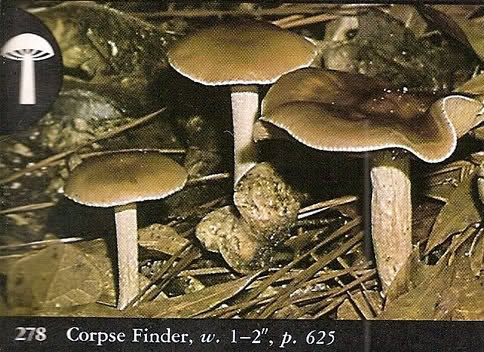


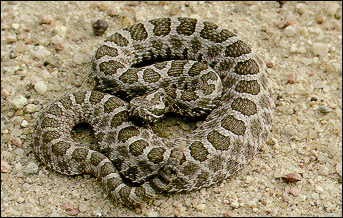

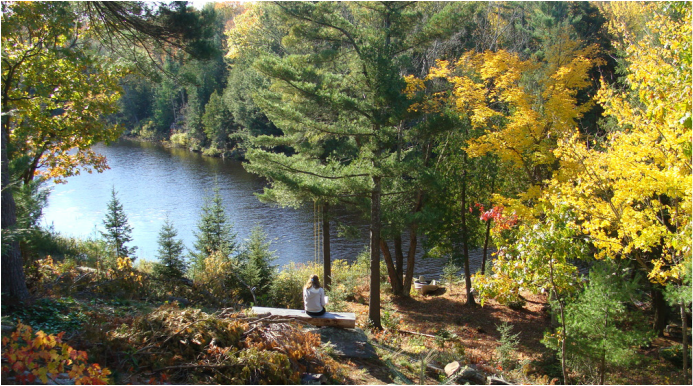






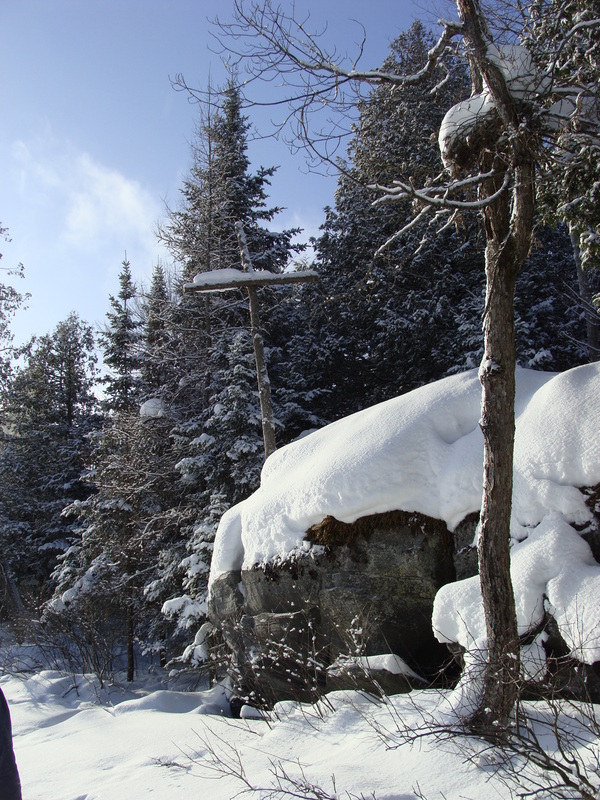

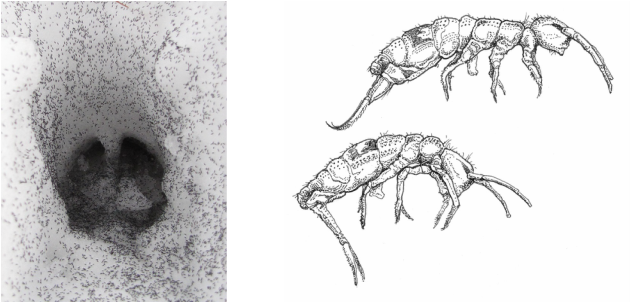



 RSS Feed
RSS Feed
